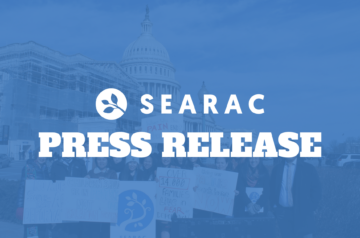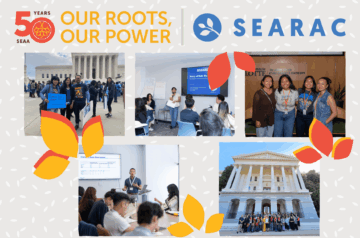Washington, DC – Last week, Rep. Linda Sanchez (D-CA-38) introduced President Biden’s immigration bill, the U.S. Citizenship Act. The proposal would offer a path to citizenship for 11 million undocumented immigrants, including more than 100,000 undocumented Southeast Asian immigrants, and Temporary Protected Status holders.
The bill also includes Rep. Judy Chu’s (D-CA-27) Reuniting Families Act to address the backlogs in granting family-based and employment-based visas. Furthermore, the bill adopts the narrow definition of conviction from Jesús G. “Chuy” García’s (D-IL-4) New Way Forward Act, eliminates several bars to relief from deportation, and provides more forms of discretionary relief for people who have been entangled with the criminal legal system.
However, while the US Citizenship Act includes some components that address the criminal legal and immigration systems, it disappointingly adds harmful and unnecessary new additional criminal grounds of inadmissibility. The bill would exclude many immigrants who possess a broad range of convictions from citizenship and leave these communities vulnerable to deportation.
“The U.S. Citizenship Act is a step forward for millions of people in our immigrant communities. It would begin to clear the family-based visa backlogs for many Southeast Asian American families who were separated in their escape during and after the fall of Vietnam, Khmer Rouge genocide, and Secret Wars in Laos,” said Quyen Dinh, executive director of SEARAC. “However, we are disappointed that the bill continues to exclude immigrants and refugees with prior convictions from relief by creating new inadmissibility standards for legalization and preventing Southeast Asian Americans with certain convictions from accessing the universal waivers. We recognize the deeply rooted history of white supremacy that makes up our criminal legal and immigration system, and the bill’s addition of new criminal bars would continue to punish Southeast Asians Americans for their contact with our unjust system. Congress must immediately rectify this issue by changing the current language of the bill to undo decades of racialized and systemic targeting of our communities by providing everyone the opportunity for a second chance.”
“We are excited for the millions of immigrants and refugees who will find relief with the U.S. Citizenship Act, yet those with prior convictions are again excluded. However, this Act will further merge the immigration and criminal legal systems, as it allocates more resources to surveillance and enforcement technology at the Southern border. The new grounds of inadmissibility will also further criminalize refugee communities, like Southeast Asians, and put them and others at more risk of detention and deportation,” said Sarath Suong, National Director of Southeast Asian Freedom Network. “This bill would provide relief for some at the expense of others. We need and we deserve more than this. SEAFN believes that all of us should have the freedom to move and the freedom to stay, regardless of one’s citizenship status or criminal background. We will celebrate this victory for those it would benefit, and we continue to fight for an immigration system that takes care of everyone.”




